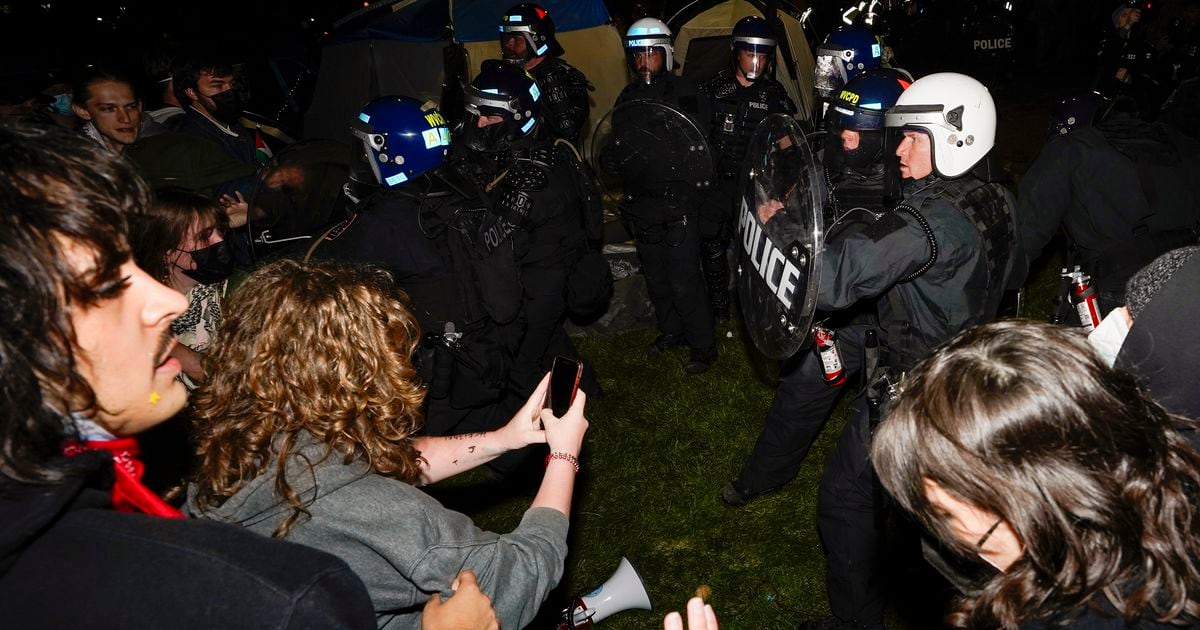The University of Utah Police — with backup from four state and local police departments — forcefully disbanded what had been a peaceful pro-Palestine rally at the University of Utah last week. The use of riot gear, crowd-control munitions, mobile surveillance units and drones by police in conjunction with these arrests, is deeply concerning. We call for an immediate investigation of these tactics and verification of their compliance with current laws. But these tactics highlight issues far greater than the current debate on campus.
We are faculty with lived experience in the Middle East and other parts of the world where human freedoms are less valued and protected than in the United States. Authoritarian regimes use various methods to preclude and expunge dissent in academic institutions. Such tactics include punishing and purging students and staff for expressing contrary political views, surveilling community members and altering academic curricula to enforce a particular ideology.
With the rise of AI and the COVID-19 pandemic, our lives are increasingly surveilled. Work, now untethered from traditional offices, brings surveillance software and devices into our private homes. Some employers demand constant access to devices and data to monitor productivity and ensure security, granting organizations exceptional power through advanced surveillance technology.
Sadly, the technologically-mediated surveillance was on full display at the University of Utah last week when the president summoned the police to campus, who then deployed advanced mobile camera surveillance stations as well as multiple drones to put down what had been a peaceful pro-Palestinian protest by university students and faculty. This surveillance of Utahns practicing their cherished First Amendment rights to dissent and peaceful protest on the campus of a flagship state institution of higher education should give pause to all who value their individual liberties.
Student protesters first arrived on campus on the afternoon of April 29. Chanting and singing, they erected tents on the lawn of Presidents’ Circle, an area recently designated for student camping. Within just a few hours, more than 100 police officers clad in full riot gear moved in, arresting 19 protesters and firing kinetic-impact projectiles to subdue protesters. Based on a statement by a university spokesperson, one might imagine these munitions to be something like Nerf balls, but such “non-lethal” weapons are meant to cause blunt trauma, pain and intimidation. They have the potential to cause permanent injury, and indeed, at least one protester was injured by this use of force.
On April 30, University of Utah police officers surrounded and arrested one of the senior members of the student protestors at the onset of a protest. Another protest leader was arrested in front of the Huntsman Center during the graduation ceremonies. The targeted arrests of protest leaders, possibly enabled by digital surveillance, seem intended to cripple the movement’s ability to express their ideas. In just 24 hours, our university exhibited one of the most swift and extreme reactions to a peaceful student protest in the nation.
These assaults on student expression align with broader trends undermining academic freedom at the University of Utah. In the recent legislative session, Utah lawmakers passed, and the governor signed, HB438 and SB192. These laws weaken tenure and the faculty’s role in the shared governance of the university, two pillars of higher education that protect faculty from dismissal for teaching controversial topics and ensure educational programs are not unduly influenced by political considerations. HB261, another recent law, rolls back diversity initiatives in public education. While Utah’s anti-DEI law does not cover academic research or course materials like some other states’ bans, it risks chilling classroom discussion and faculty research on racism, sexism and other forms of oppression. Under the guise of protecting free speech, new rules were adopted last fall requiring university and college leaders to remain neutral on hot-button issues.
function onSignUp() { const token = grecaptcha.getResponse(); if (!token) { alert("Please verify the reCAPTCHA!"); } else { axios .post( "https://8c0ug47jei.execute-api.us-east-1.amazonaws.com/dev/newsletter/checkCaptcha", { token, env: "PROD", } ) .then(({ data: { message } }) => { console.log(message); if (message === "Human

























